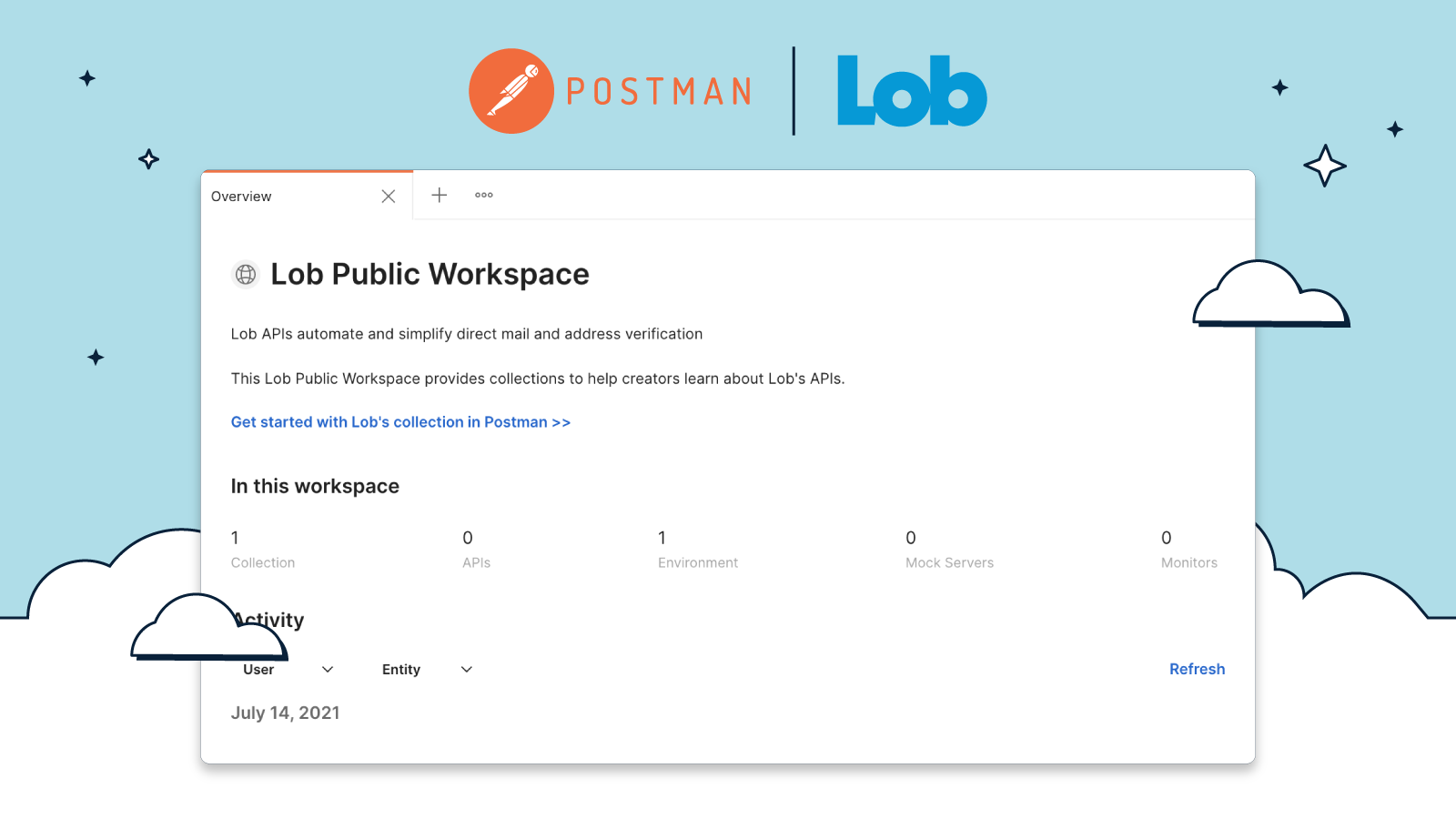Connect Your Online and Offline Worlds with Lob’s Public Workspace

This is a guest post written by Sid Maestre, director of engineering at Lob.
Lob offers a direct mail API and an address verification API that enable companies to send US postal mail as effortlessly as sending emails. Lob’s developer experience team is moving toward generating tools, documentation, and more from our OpenAPI specification, and the first result of this initiative is the Lob Public Workspace in Postman.
Lob’s developer experience team authored a multifile OpenAPI 3.0 specification that was bundled into a single YAML file for distribution and used to create our Postman Collection. Then, when we heard about Postman public workspaces, we realized a great opportunity to simplify the developer experience. Instead of linking to our Postman Collection on GitHub, we can now point developers to our public workspace, which has tailored documentation and a video walk-through—all so that developers have the best first-time experience with our APIs.
How to get started with Lob’s public workspace
Start by registering for a free Lob account. After you log in, you’ll find API keys under Settings. Next, fork our Postman Collection and fork our Environment into your Postman workspace.
1. Fork the Lob API collection:

2. Fork the Lob Public Environment:

3. Copy and paste your TEST and LIVE API keys from Lob.com into your environment variable current values and click Save:

4. Select your forked Lob Public Environment:

You are now ready to start exploring Lob’s APIs. Perform operations—like create, read, list, and delete—on addresses, postcards, letters, checks, and more. Our address verification is available for both US and international locations, with additional autocomplete and zip code lookup functionality for US addresses.
Pro tip: Another cool feature of Postman Collections that we find to be really helpful are the generated client code snippets. In Lob’s collection, you can select an operation—for example, “List all addresses.” Then click the </> code icon on the right toolbar. After you select a language from C# to Swift, you’ll get a runnable code snippet that you can copy and paste into your favorite IDE.
We hope you enjoy exploring Lob’s public workspace, and we look forward to hearing from you. Drop us a line with any feedback at [email protected] or hit us up on Twitter via @Lob.

What do you think about this topic? Tell us in a comment below.